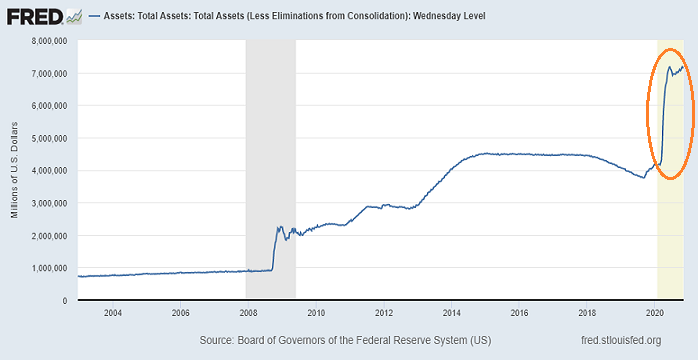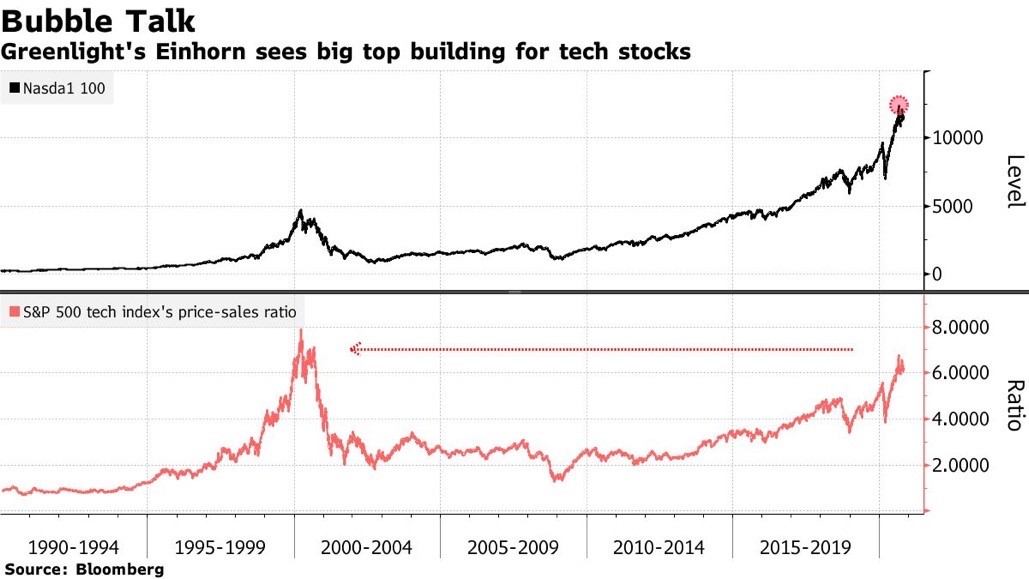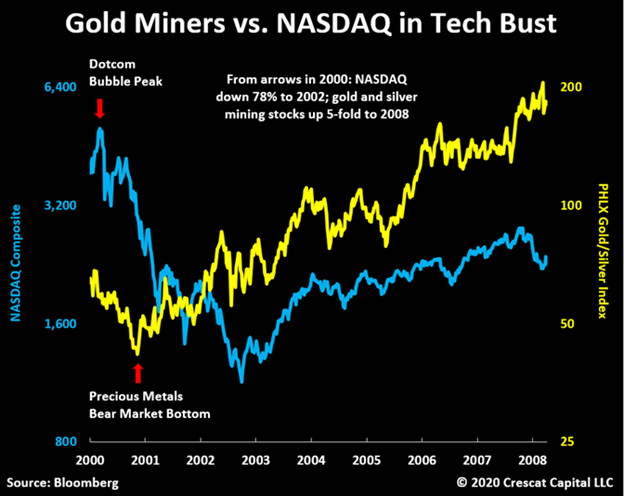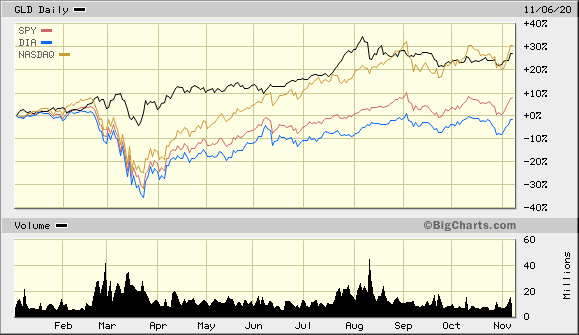Election outcomes tend to provide clarity. Even contested ones.
For example, would one party in the U.S. control the executive branch as well as the legislative branch? At the moment, it would appear that this will not come to pass. One party is going to control the House and the White House; the other is going to control the Senate.
Divided government. Stocks historically favor it.
Right now, Wall Street is celebrating the notion that tax hikes are a non-starter. Meanwhile, fiscal stimulus (e.g., forgiveness loans, direct household payments, etc.) and Federal Reserve stimulus (e.g., electronic money printing, asset purchasing, rate suppression, etc.) will continue to inflate the stock bubble.

Some amount of election clarity was more than enough for market participants. On the flip side, the election did not fix the underlying lunacy in valuations.
Consider the tech sector. You’d have to be blind to ignore the current craziness — irrational exuberance that feverishly competes with the effervescence of 2000’s stock bubble.

Perhaps there’s something to be gleaned from the past, however. Consider what transpired in the 2000-2002 tech wreck. While tech stocks in the Nasdaq collectively lost more than 3/4 of their value, gold miners became one of the hottest wealth building sub-sectors around.

It’s not that gold (commodity) or gold miners (stock) answer everyone’s prayers. Yet they darn sure provide genuine diversification against inflation, Fed dollar devaluation and/or a broad market meltdown.
Year-to-date, the much-maligned yellow metal has performed better than key benchmarks like the Dow and S&P 500. It has even managed to do as well as the Nasdaq, despite the ballooning of tech valuations.

Would you like to receive our weekly newsletter on the stock bubble? Click here.
